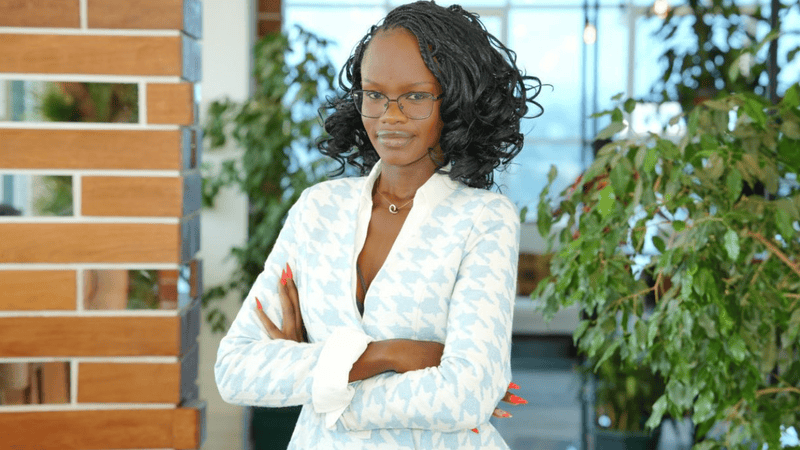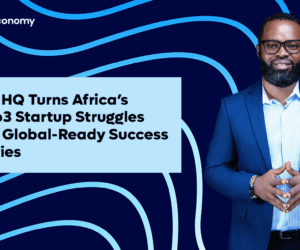Africa has earned a coveted place in the global Web3 ecosystem. Behind this momentum are visionary leaders who are doing more than evangelising technology; they are building pathways for inclusion, education, and sustainability. One of those leaders is Meave Akinyi.
She is the co-founder and Chief Operating Officer at Decentrix Africa, a Nairobi-based Web3 growth hub that helps blockchain and crypto companies scale across the continent.
Akinyi’s story is not one of chance but of conviction. From her early beginnings as a curious university student interning in an NFT community on Telegram to leading one of Africa’s most ambitious Web3 operations, her journey reflects both the promise and the growing pains of Africa’s tech revolution.
“I’ve only ever known Web3,” Akinyi laughs as she tells me in this interview, recalling her early years. Her first foray into the industry came when she volunteered as an intern for a SaaS-based NFT project she discovered in a Telegram group.
Entry point into the world of decentralised technologies opened doors to a series of roles, from community management at Africa Blockchain Centre to working on Bitcoin education initiatives across Kenya.
Each role, she says, reinforced a key lesson: distribution and storytelling are at the heart of building anything meaningful in Web3. “How you distribute yourself, your skills, and your expertise determines, to a very large extent, the success or otherwise of your career,” she explains.
For Akinyi, who describes herself as an all-round marketer, “distribution” means everything from content creation to relationship building, a philosophy she now weaves into Decentrix Africa’s operational DNA.

At the Africa Blockchain Centre, she helped organise developer-centric events for protocols like Algorand, Cardano, and IoTeX, helping onboard young African developers into blockchain ecosystems.
For Akinyi, community isn’t a buzzword but the very backbone of every successful Web3 project. Through such localised engagement, Decentrix bridges the gap between crypto-native companies and Africa’s growing but still sceptical user base.
“We don’t just organise events,” Akinyi emphasises. “We convert curiosity into adoption.”
Leading as a woman in Web3
Working in Africa’s tech and crypto ecosystem has unique challenges, especially for women. Akinyi speaks candidly about her experience navigating male-dominated spaces. “You have to consistently remind yourself that you are a professional before you are a woman,” she says. “You’re in that room because you bring value.”
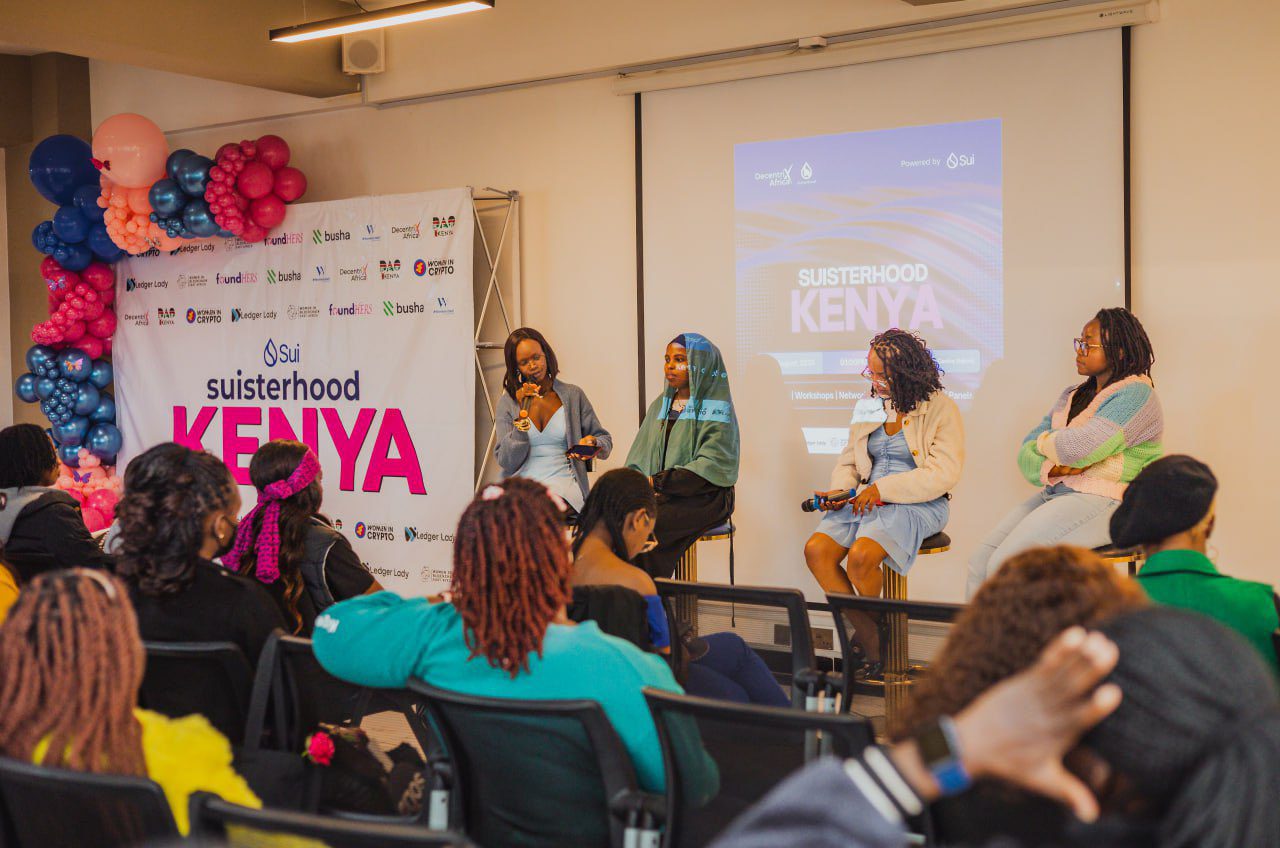

She acknowledges that gender bias, tokenism, and ageism are still prevalent in Africa’s tech ecosystem. “Sometimes you’re invited to a panel just to tick the diversity box,” she notes. “That’s not the kind of inclusion we need. Women should be in these spaces because they are good at what they do.”
Her philosophy is grounded in resilience and meritocracy. “Value responds to value,” she says repeatedly, a mantra she lives by. For Akinyi, proving one’s worth in this industry requires not only expertise but also visibility. “Don’t play small. Be loud about your value. Talk about what you’re building.”
She encourages young African women to embrace platforms like LinkedIn, which many in Gen Z dismiss as “cringe”. “The loudest organisations are the most funded,” she says. “The same applies to individuals; if you’re doing something valuable, talk about it.”
Also read: Inside Peter Maina’s plan to turn coffee trees into digital assets with Project Mocha
Driving adoption through education and local impact
If there’s one mission Akinyi speaks about with passion, it’s education. For her, the lack of public understanding of blockchain and cryptocurrency remains the biggest obstacle to mass adoption in Africa. “The average person still thinks crypto is a scam,” she laments.
To tackle this, Decentrix Africa positions itself as both a growth partner and an educational catalyst. Beyond helping exchanges and protocols scale, the company organises masterclasses, webinars, and activations designed to simplify crypto concepts for ordinary Africans.
“Our dream is that one day, when someone tells you how they got into crypto, they’ll say, ‘I attended a Decentrix Africa event,’” Akinyi says. “That’s the impact we want.”
This commitment to education extends beyond crypto. Decentrix is also integrating AI and data analytics into its operational strategy, connecting clients with partners building intelligent tools that enhance user experience.
“We also want Africans to understand AI, not just as a buzzword but as a tool for solving real problems,” she adds.
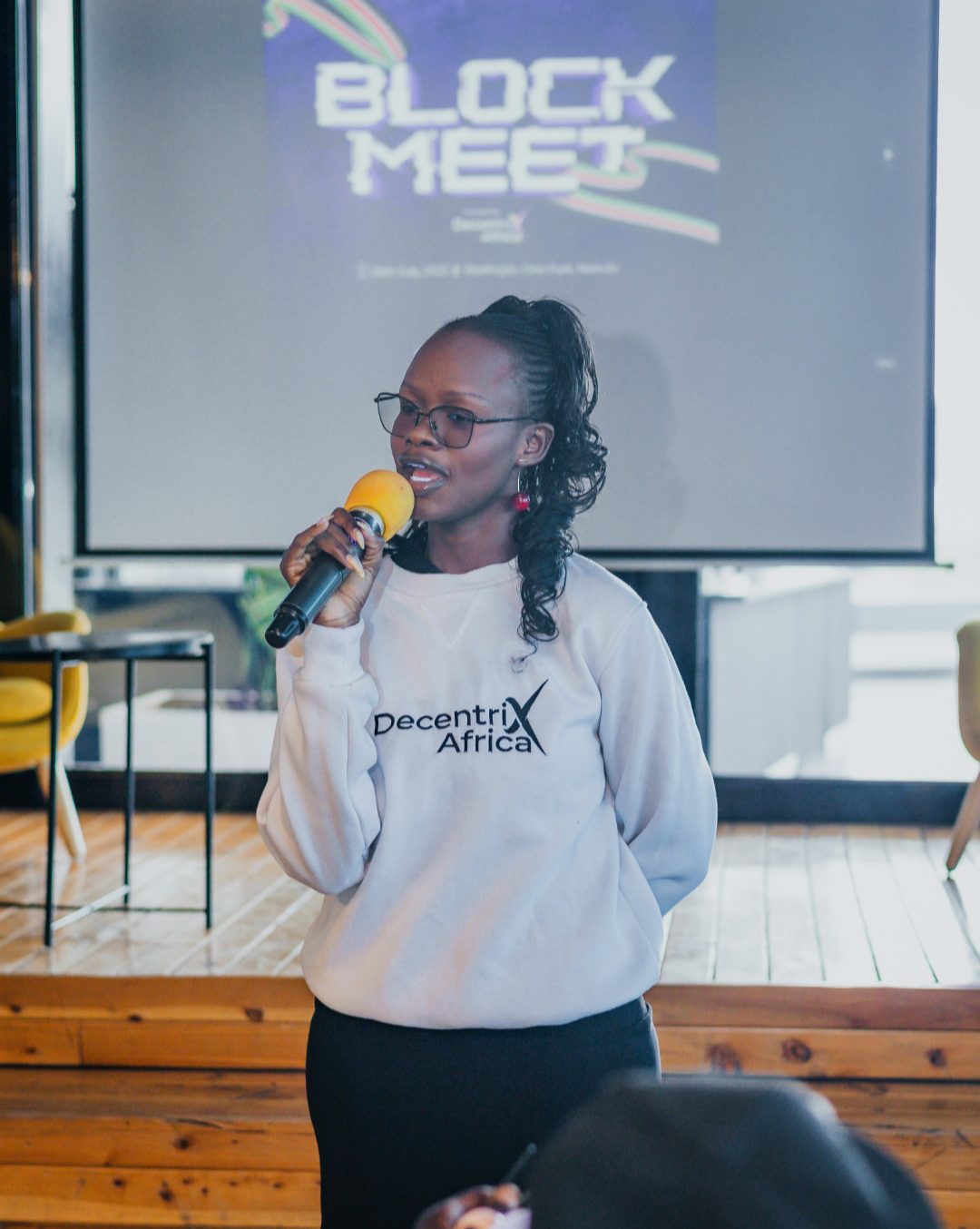

Despite growing enthusiasm, the Web3 industry in Africa faces a perfect storm of challenges. Regulatory uncertainty, infrastructure gaps, and slow user adoption. “Adoption is the biggest hurdle,” Akinyi admits. “You have to educate, incentivise, and then convert users. It’s a long and expensive process.”
While regulation is gradually improving, with countries like Kenya and South Africa introducing clearer frameworks, Akinyi believes progress will only be sustainable if education keeps pace. “We’re still a young continent when it comes to crypto literacy,” she says. “So, adoption must start with awareness.”
Building bridges between global and local builders
While Decentrix helps global players enter African markets, Akinyi is equally passionate about helping African startups scale globally. “Most African projects have a short shelf life,” she says. “They raise money but struggle to sustain growth because building here is tough and expensive.”
To counter that, Decentrix is building pipelines that connect African innovators with global ecosystems.
“We want the world to know African-built products like Minisend,” she says, referring to a crypto mini-app helping creators on Web3 social platforms access payments. “We must start believing in our own builders.”
Her dream is to see homegrown African Web3 startups thrive across borders. “When someone in North Africa or Europe hears about blockchain marketing, we want them to think of Decentrix Africa,” she says confidently.
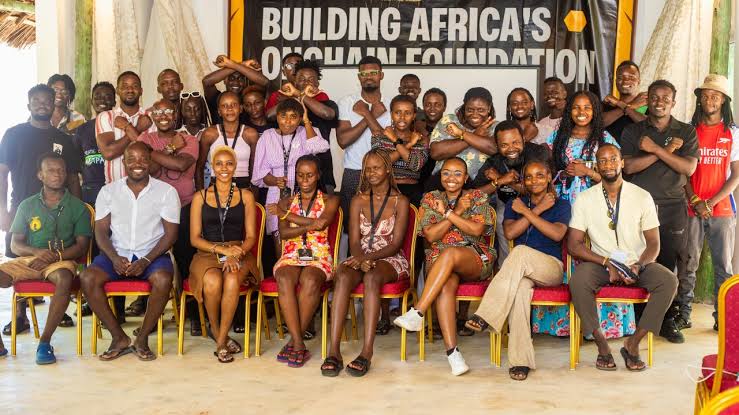

Asked about her legacy, Akinyi’s tone softens. “I want my work to impact lives,” she says. “I want Africans to not just know about crypto but to earn from it.” She envisions a continent where creators, traders, and innovators leverage blockchain to achieve financial independence.
“In ten years, I want to meet someone who tells me, ‘I attended a Decentrix event, learnt about crypto, and now I earn from it.’ That’s the impact I want, to lift people out of unemployment and poverty through knowledge.”
“Our goal is to make sure every African who wants to learn can learn, and every innovator who wants to build can scale”, she concludes.

